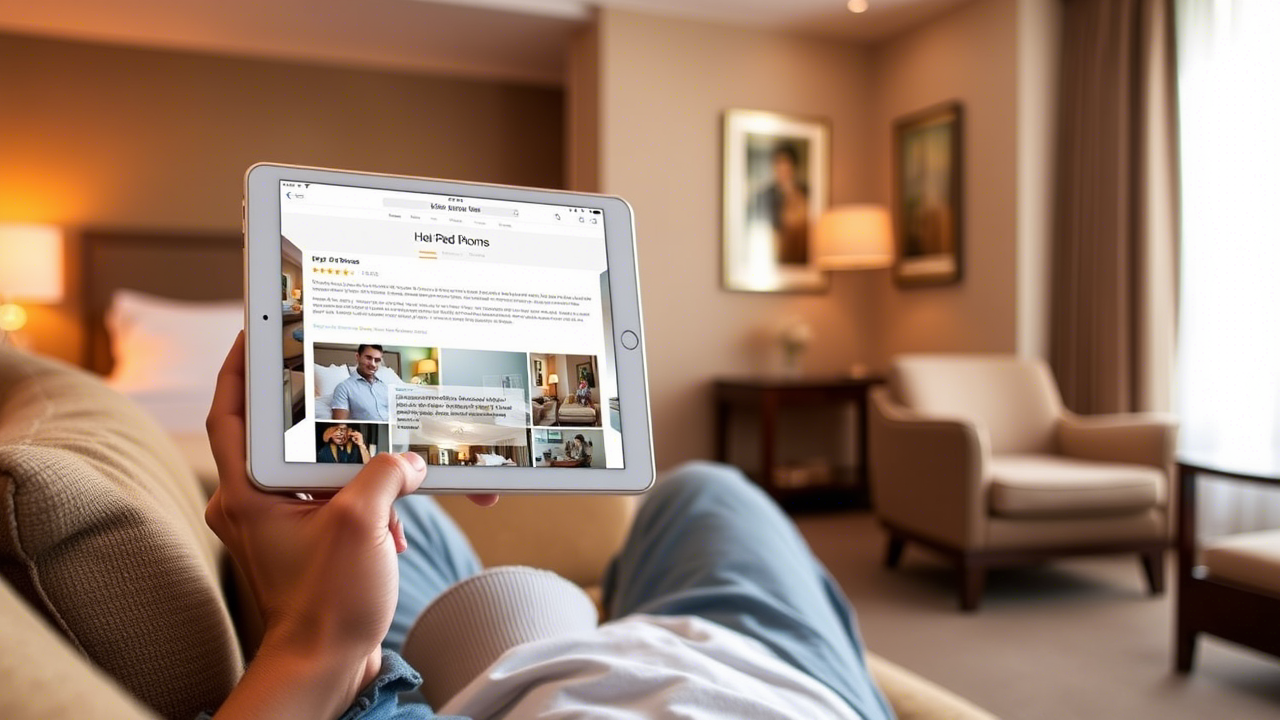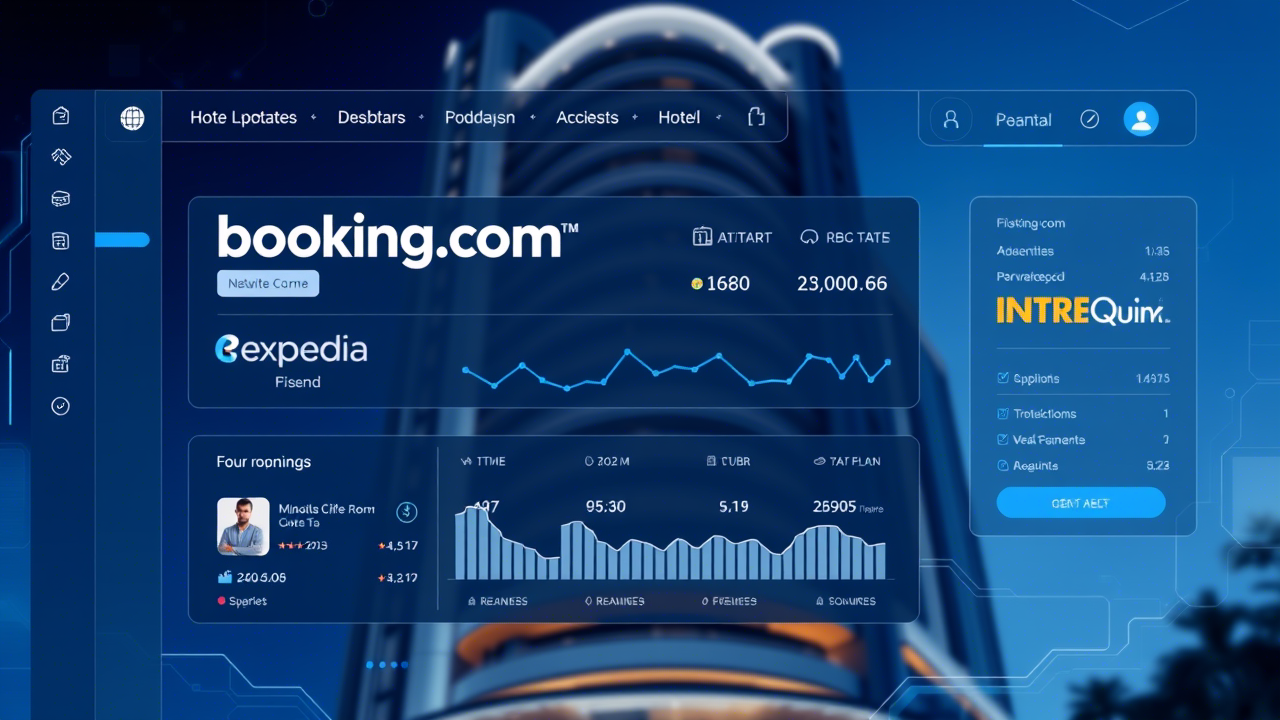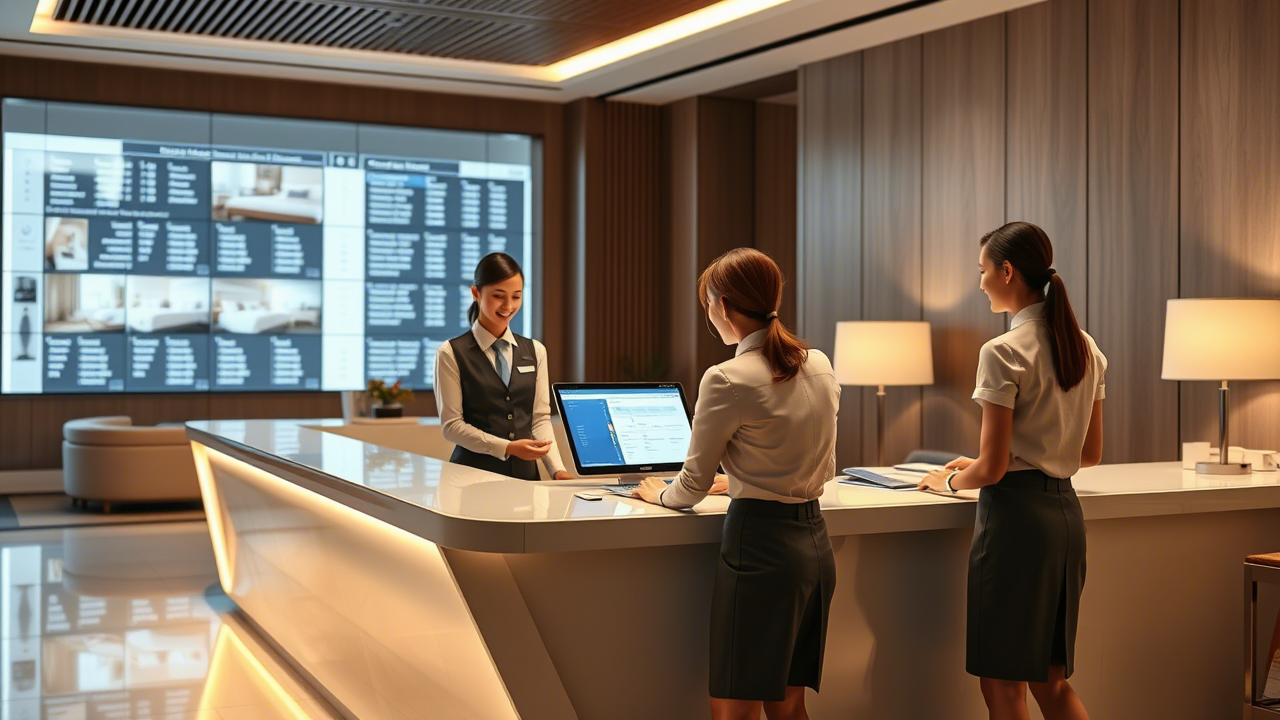Imagine walking into a bustling hotel lobby, the air alive with excitement and possibility. Now, picture that same energy translated into the digital realm. Your hotel’s website is the virtual front desk of your establishment, and it’s open 24/7, 365 days a year. 🏨💻
In today’s digital age, having a website for your hotel isn’t just a luxury—it’s a necessity. With the majority of travelers turning to the internet to plan their trips, a well-designed website can be the difference between a fully booked season and empty rooms. But why exactly is a website so crucial for your hotel’s success? 🤔
From boosting direct bookings to building trust with potential guests, enhancing online visibility to controlling your brand image, a website is your hotel’s most powerful tool in the digital landscape. Let’s dive into the five key reasons why your hotel needs a website and how it can transform your business, starting with how it can significantly increase your direct bookings. 📈🔑
Boost Direct Bookings

Eliminate third-party booking fees
By having your own hotel website, you can significantly reduce or eliminate third-party booking fees. These fees can eat into your profits, often ranging from 15% to 30% per booking. Here’s a comparison of booking costs:
| Booking Type | Average Commission |
|---|---|
| Direct Booking | 0-3% (payment processing) |
| OTA Booking | 15-30% |
Encouraging direct bookings through your website allows you to retain more revenue and offer competitive rates to your guests.
Offer exclusive deals and packages
Your hotel website provides a platform to create and promote exclusive deals that aren’t available elsewhere. Consider these strategies:
- Limited-time offers
- Loyalty program discounts
- Seasonal packages
- Room upgrades for direct bookings
These exclusive offers incentivize potential guests to book directly through your website, increasing your direct bookings and customer loyalty.
Implement a user-friendly booking system
A smooth, intuitive booking process is crucial for converting website visitors into guests. Key features of an effective booking system include:
- Mobile responsiveness
- Clear pricing and availability
- Secure payment processing
- Minimal steps to complete a booking
Showcase room availability in real-time
Displaying up-to-date room availability builds trust and urgency, encouraging potential guests to book immediately. Implement a real-time availability calendar that:
- Syncs with your property management system
- Shows different room types and rates
- Highlights special offers or low availability periods
By focusing on these aspects, your hotel website becomes a powerful tool for boosting direct bookings and reducing reliance on third-party platforms.
Build Trust with Potential Guests

Display high-quality photos and virtual tours
In today’s digital age, potential guests expect to see what they’re booking before they commit. High-quality photos and virtual tours are essential for building trust and enticing visitors to make reservations. Here’s why they matter:
- Showcase your property’s best features
- Give guests a realistic expectation of their stay
- Reduce the risk of disappointment upon arrival
- Increase booking confidence
| Photo Type | Impact on Trust |
|---|---|
| Exterior | First impression |
| Rooms | Comfort assurance |
| Amenities | Value demonstration |
| Dining | Experience preview |
Highlight guest reviews and testimonials
Nothing builds trust like the words of satisfied customers. Incorporating guest reviews and testimonials on your website can significantly influence potential bookings:
- Display recent reviews prominently
- Include ratings from popular travel sites
- Feature detailed testimonials from diverse guest types
- Respond to reviews to show engagement
Provide detailed information about amenities and services
Transparency is key to building trust. Offer comprehensive details about your hotel’s offerings:
- List all available room types and their features
- Describe on-site facilities (e.g., gym, spa, restaurants)
- Explain complimentary services (e.g., Wi-Fi, breakfast)
- Outline any unique experiences or packages
Showcase your hotel’s unique selling points
What sets your hotel apart from the competition? Highlighting your unique selling points (USPs) can build trust by demonstrating your value proposition:
- Location advantages
- Historical significance or interesting backstory
- Eco-friendly practices or certifications
- Special events or local partnerships
By focusing on these elements, your hotel website can effectively build trust with potential guests, increasing the likelihood of direct bookings and repeat visits.
Enhance Online Visibility

Improve search engine rankings
A hotel website is crucial for enhancing your online visibility. By implementing effective SEO strategies, you can significantly improve your search engine rankings. Here are some key tactics:
- Optimize your website content with relevant keywords
- Create high-quality, informative blog posts about your hotel and local attractions
- Ensure your website is mobile-friendly and loads quickly
- Build quality backlinks from reputable travel websites and local businesses
Integrate with Google My Business
Integrating your hotel website with Google My Business (GMB) is essential for local search visibility. Here’s why:
| Benefits of GMB Integration | Impact on Visibility |
|---|---|
| Appear in Google Maps | Increased local exposure |
| Showcase photos and amenities | Better first impression |
| Collect and display reviews | Enhanced credibility |
| Provide direct booking links | Improved conversion rates |
Create location-specific content
Developing content that focuses on your hotel’s location can significantly boost your online visibility:
- Write detailed guides about local attractions and events
- Showcase nearby restaurants and entertainment options
- Highlight unique aspects of your city or region
- Create a local events calendar to attract potential guests
Utilize local SEO strategies
Implementing local SEO tactics can help your hotel website stand out in location-based searches:
- Include your city and region in title tags and meta descriptions
- Create location-specific landing pages for different areas you serve
- Encourage guests to leave reviews on your GMB profile and other travel sites
- Build partnerships with local businesses and tourism boards for cross-promotion
By focusing on these strategies, your hotel website can significantly enhance its online visibility, attracting more potential guests and increasing bookings.
Control Your Brand Image
Customize website design to reflect your hotel’s personality
Your hotel’s website is the digital face of your brand, making it crucial to design a site that truly captures your establishment’s unique character. A well-designed website can:
- Create a lasting first impression
- Set guest expectations
- Differentiate you from competitors
Here’s a comparison of design elements and their impact:
| Design Element | Impact on Brand Image |
|---|---|
| Color Scheme | Evokes emotions and sets the mood |
| Typography | Conveys professionalism and style |
| Imagery | Showcases amenities and atmosphere |
| Layout | Enhances user experience and navigation |
Share your hotel’s story and values
Storytelling is a powerful tool for connecting with potential guests. Use your website to:
- Narrate your hotel’s history
- Highlight your mission and vision
- Introduce key team members
Highlight sustainability initiatives and community involvement
Today’s travelers are increasingly eco-conscious. Showcase your hotel’s commitment to sustainability and local community by:
- Detailing green practices (e.g., energy conservation, waste reduction)
- Featuring partnerships with local businesses
- Highlighting community outreach programs
Showcase awards and accolades
Build credibility and trust by prominently displaying your achievements:
- Industry awards
- Guest satisfaction ratings
- Positive reviews from reputable sources
By controlling your brand image through a well-designed website, you create a cohesive and authentic representation of your hotel. This not only attracts potential guests but also sets the stage for a positive experience from the moment they interact with your brand online. Next, we’ll explore how a website can improve guest communication, further enhancing the overall guest experience.
Improve Guest Communication

Implement a live chat feature
A live chat feature on your hotel’s website can significantly enhance guest communication. It provides instant support, answering queries in real-time and improving overall guest satisfaction.
| Benefits of Live Chat | Impact on Guest Communication |
|---|---|
| 24/7 Availability | Immediate response to inquiries |
| Personalized Service | Tailored recommendations |
| Efficiency | Quick resolution of issues |
| Cost-effective | Reduced phone call volume |
Provide easy access to contact information
Ensure your hotel’s contact details are prominently displayed on every page of your website. This includes:
- Phone number
- Email address
- Physical address
- Social media links
Offer personalized recommendations for local attractions
Enhance your guests’ experience by providing curated lists of local attractions, restaurants, and activities. This personal touch can:
- Increase guest satisfaction
- Encourage longer stays
- Promote return visits
- Boost positive reviews
Create a FAQ section for common inquiries
A well-structured FAQ section can address common questions, saving time for both guests and staff. Include information about:
- Check-in/check-out times
- Parking facilities
- Pet policies
- Amenities offered
Enable guests to manage their reservations online
Empower your guests by allowing them to manage their bookings through your website. This self-service option can:
- Reduce staff workload
- Minimize booking errors
- Increase guest satisfaction
- Provide valuable data on guest preferences
By implementing these communication strategies on your hotel website, you’ll create a more engaging and user-friendly experience for your guests, ultimately leading to increased bookings and customer loyalty.
A well-designed hotel website is a powerful tool that can significantly impact your business’s success. By having your own online platform, you can increase direct bookings, build trust with potential guests, and enhance your online visibility. Moreover, a website allows you to control your brand image and improve communication with your guests, ensuring a seamless experience from the first interaction to check-out.
Don’t let your hotel fall behind in the digital age. Invest in a professional website that showcases your unique offerings and provides a user-friendly booking experience. By doing so, you’ll not only attract more guests but also foster long-term relationships that can lead to repeat visits and positive word-of-mouth recommendations. Take the first step towards a stronger online presence today and watch your hotel thrive in the competitive hospitality market.









